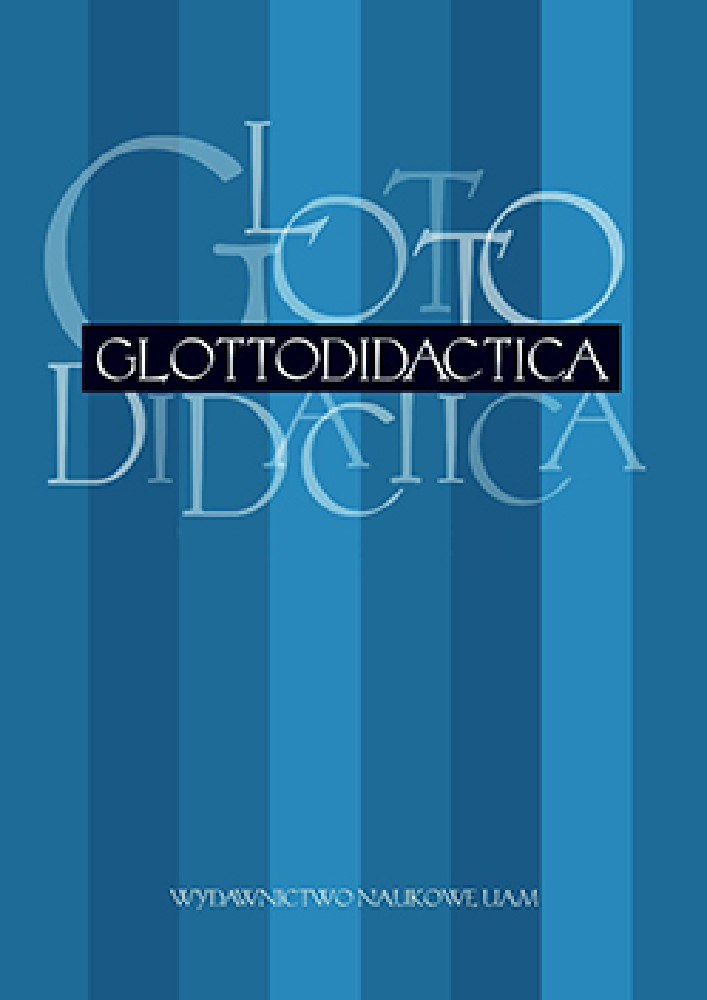Abstract
The paper highlights the what, the why and the how questions which may be posed by the novice researcher in the field of visual impairment. I discuss the problematic issues inherent to various stages of research preparation and implementation such as selection of a research method, recruitment of subjects for a study, the lack of theories and models in the field of visual impairment, applicability and administration of standard tests in the SEN setting, keeping up participants’ commitment throughout a project, or sustainment of the researcher’s emotional involvement.Literaturhinweise
Bak, S., 2011. Types of research: Quantitative, qualitative, mixed methods, and teacher action. In: The Educator. Vol. XXIV, issue 1. A publication of ICEVI, 26–31.
Creswell, J.W., 2002. Research design: Qualitative, quantitative, and mixed methods approaches. New York: Sage Publications.
Fraiberg, S., 1977. Insights from the blind. New York: Basic Books.
Jedynak, M., 2009. Gifted Visually Impaired Children Learning Foreign Languages. In: Pawlak M. (ed.). Studies in Pedagogy and Fine Arts. New Perspectives on Individual Differences in Language Learning and Teaching. Vol. VIII. Poznań–Kalisz: Adam Mickiewicz University, Faculty of Pedagogy and Fine Arts in Kalisz, 337–347.
Jedynak, M., 2010. Foreign Language Motivation – Some Deliberations on its Enhancement in Visually Impaired Learners. In: Michońska-Stadnik A. (ed.). Anglica Wratislviensia XLVIII. Wrocław: Wydawnictwo Uniwersytetu Wrocławskiego, 171–182.
Jedynak, M., 2011a. Across the Borders of Typhlopedagogy and L2: New Research Problems, Recent Findings, Perspectives. In: Pawlak, M. (ed.). Extending the Boundaries of Research on Second Language Learning and Teaching. Part V. Berlin–Heidelberg: Springer, 263–275.
Jedynak, M., 2011b. Językowe odwzorowanie rzeczywistości przez niewidomych i widzących użytkowników języka polskiego. In: Rozprawy Komisji Językowej XXXVIII. Wrocław: Wrocławskie Towarzystwo Naukowe, 61–73.
Jedynak, M., in press. Nauczanie wymowy języka obcego w kontekście ucznia niewidomego. In: Proceedings of the V Scientific Conference ‘Language-Literature-Culture’ held at Higher Vocational School in Płock, Poland 9–10th May 2011.
Kirchner, C., 2003. Guest Editorial. In: Journal of Visual Impairment & Blindness. 97 (5), 259.
Krasowicz, G., Kurzyp-Wojnarska, A., 1990. Kwestionariusz do badania poczucia kontroli (KBPK). Warszawa: Pracownia Testów Psychologicznych Polskiego Towarzystwa Psychologicznego.
Marshall, C., Rossman, G.B., 2006. Designing qualitative research (4th ed.). Thousand Oaks, CA: Sage.
Pasquero, J., Schmitt, R., Beaulieu, S., 2001. Facing the reality of qualitative research: An interactive workshop comparing teaching and research case writing. In: Klein, H. (ed.), Proceedings of the 18th International Conference on Case Research and Application (WACRA) 17–29. Lund: Sweden.
Richards, K., 2003. Qualitative inquiry in TESOL. Basingstoke: Palgrave Macmillan.
Riise, R., 1993. Nordic registers of visually impaired children. In: Scandinavian Journal of Social Medicine 21: 66–68.
Schachter, J., Gass, S. (eds), 1996. Second language classroom research: Issues and opportunities. Mahwah, NJ: Lawrence Erlbaum.
Smith, T.M., 2008. Adaptation to low vision caused by age-related macular degeneration: A case study. In: Journal of Visual Impairment and Blindness, 102 (11), 725–730.
Tobin, M., 2008. Information: A new paradigm for research into our understanding of blindness? In: British Journal of Visual Impairment, 26, 119–127. doi: 10.1177/0264619607088278
Tobin, M., 2011. Is research necessary? In: The Educator, vol. XXIV, issue 1, 20–25.
Warren, D.H., 1984. Blindness and early childhood development (2 ed., rev’d.). New York: American Foundation for the Blind.
Zebehazy, K., 2011. Call to action: Contributing to research through your everyday teaching experience. In: The Educator, vol. XXIV, issue 1, 38–44.
Lizenz
Authors
Authors of texts accepted for publication in Glottodidactica are required to complete, sign and return to the editor's office the Agreement for granting a royalty-free license to works with a commitment to grant a CC sub-license.
Under the agreement, the authors of texts published in Glottodidactica grant the Adam Mickiewicz University in Poznań a non-exclusive, royalty-free license and authorize the use of Attribution-NoDerivatives 4.0 International (CC BY-ND 4.0) Creative Commons sub-license.
The authors retain the right to continue the free disposal of the work.
Users
Interested Internet users are entitled to use works published in Glottodidactica since 2016, under the following conditions:
- attribution - obligation to provide, together with the distributed work, information about the authorship, title, source (link to the original work, DOI) and the license itself.
- no derivatives - the work must be preserved in its original form, without the author's consent it is not possible to distribute the modified work, such as translations, publications, etc.
Copyrights are reserved for all texts published before 2016.
Miscellaneous
Adam Mickiewicz University in Poznań retains the right to magazines as a whole (layout, graphic form, title, cover design, logo etc.).




